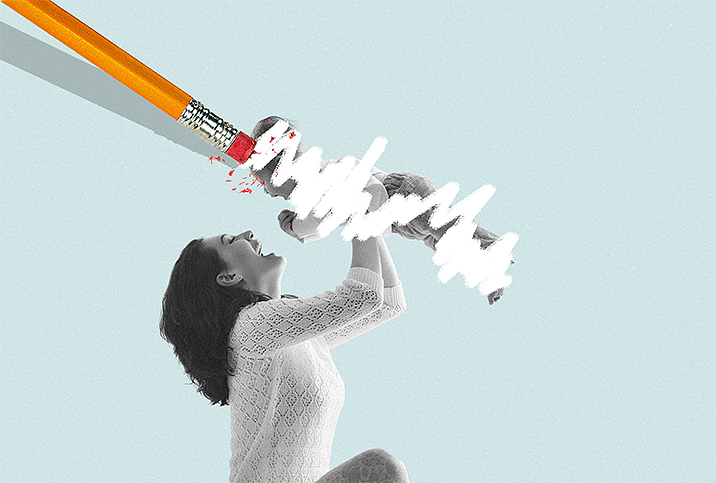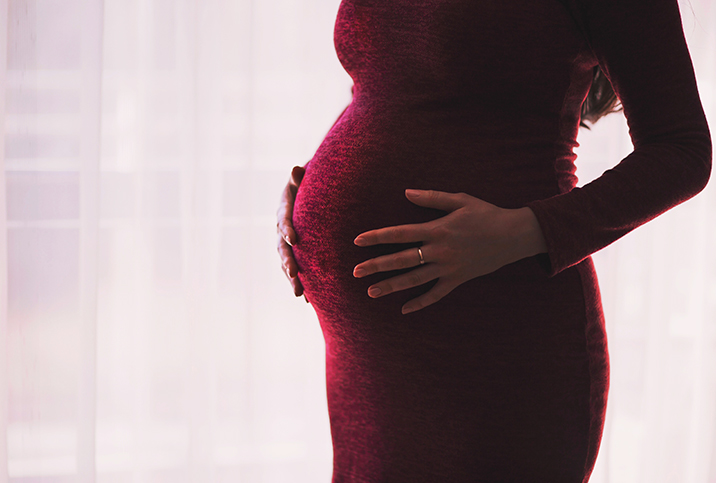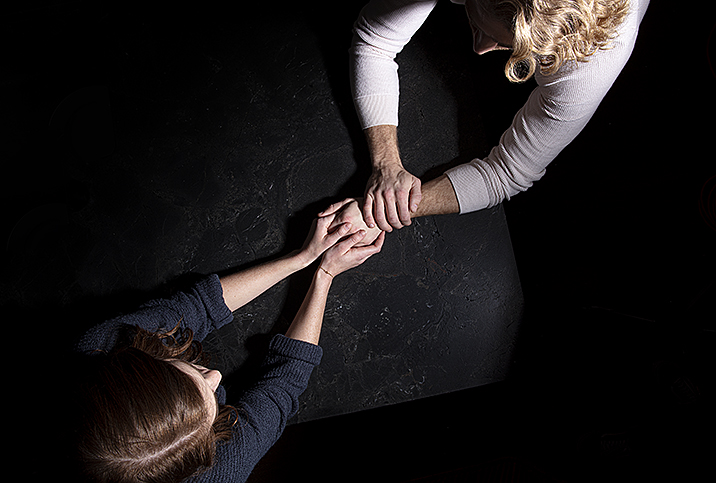Millennials Are Postponing Motherhood

Frances Belmonte and her husband of three years will have their first baby in August. They will be new parents at age 37 and are fine with it.
"There were points in time where we weren't even sure we even wanted to have kids," she told me in an interview. "We had lots of conversations about it and thought about pros and cons."
Con number one: "Kids are just so freaking expensive," she said while laughing. "Between us moving around so much and not having much money, it just didn't make sense for us to even try."
Belmonte and her husband, Ben, have lived in their Washington, D.C., apartment for two years, after a nine-year courtship that had them hopping from Baltimore to New York to Pittsburgh to New Jersey. Unlike previous generations, millennials have found that a house is out of the question because of student loan debt. Also unlike previous generations, it was her career they followed, not his. She got her bachelor's degree in biochemistry while he received his degree in political science and criminal justice, then went for the ride as she studied for a master's and a doctorate in toxicology. Being an Air Force brat, he had no problem moving from place to place, she said.
Finally, they decided that, in spite of the cost, it would be nice to start a family.
Belmonte is one of many millennial women who are delaying having children. This is one of the reasons the American birth rate is at an all-time low, according to University of New Hampshire demographer Kenneth Johnson. In 2019, Pew Research Center compiled data from the Centers for Disease Control and Prevention (CDC) and discovered that in 2016, only 48 percent of millennial women ages 20 to 35 were moms, compared with 57 percent of Gen Xers of the same age group in 2000. In 2018, the birthrate was down for all demographics except one: women 35 to 40. In fact, it rose for this group.
A Morning Consult poll reported that the poor economy was the top reason millennials give for postponing children. Media commentary sometimes focuses on the gloom and doom of this trend. But Sarah Hayford, Ph.D., director of the Department of Population Research at Ohio State University, said it is always a positive when women can decide when it is best to have a child.
"Delaying isn't a sign that everything is terrible; it's a sign that people are making good choices," she said, adding that while not all women benefit from postponing children, those on the education and career track like Belmonte certainly do.
"The way things are set up in our current society, it is very hard to be in school and to have children at the same time," she said, citing a lack of childcare on college campuses. "Some women are better able to take advantage of things like maternity leave when they're more established in their career."
The "Motherhood Penalty" makes it all the more imperative for women to get as much experience as they can before having a child. While fathers are given jobs, raises and bonuses more than childless men, the opposite is often true for mothers. Given the pandemic and two recessions, Millennial women are wise to take advantage of choices their mothers and grandmothers did not have.
Cynthia Burack, Ph.D., professor of Women's, Gender and Sexuality Studies at Ohio State University, also sees the benefits of this trend.
"In general, it's accurate that it's in the interest of women and children for women to delay motherhood longer than would have been typical in earlier generations. This is so for a number of reasons, including that women are able to attain higher levels of education and greater financial security," Burack explained in an email interview.
The negative stigma of "geriatric pregnancy" (women older than 35) is lessening as more women are choosing to have children later in life. In past generations, it was usually a feature of women having larger families. In 1800, it was common for a woman to have a brood of seven. By the time a woman had her last child, she was in her late 30s to early 40s, and contemporary data showed she suffered significant health and economic drawbacks.
Changing behaviors and characteristics of contemporary older mothers have shown the opposite. They are often more educated and in better health than their earlier-era peers. Studies also indicate that older mothers experience an increase in happiness around and after childbirth that younger mothers do not.
'Delaying isn't a sign that everything is terrible; it's a sign that people are making good choices.'
Sarah Schoppe-Sullivan, Ph.D., professor of Developmental Psychology at Ohio State University, told me advantages for older mothers are consistent across research literature. "Older mothers have had more time to accumulate resources, such as education, income, and experience, and may have been more planful about becoming parents. All of these factors are associated with better psychological well-being among mothers, which is key to high-quality parenting."
Belmonte said she feels fortunate that her generation does not have to contend with expectations to marry and have kids—although she admits in years past her mom brought up the subject of grandchildren too often for comfort.
"I'm not surprised that [the studies show] women having children later," she said. "I think it's definitely trending that way. And I say power to the women, that women feel more empowered and make choices about what they want to do and less women are getting married. I'm glad that we can have a different experience."


















